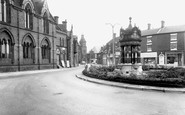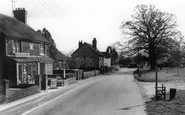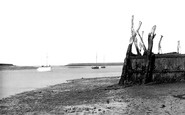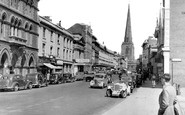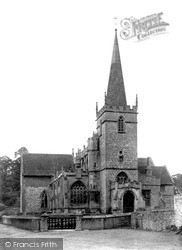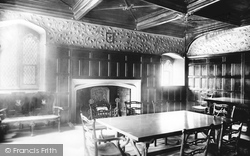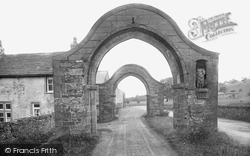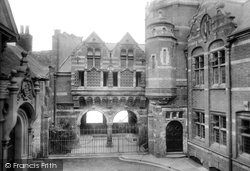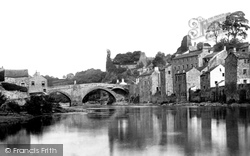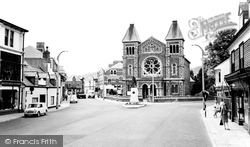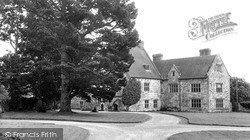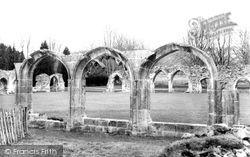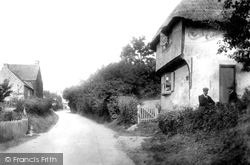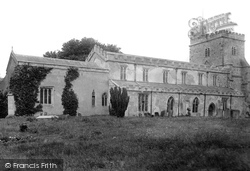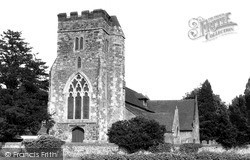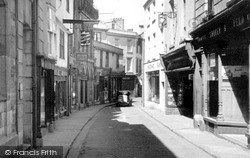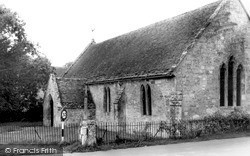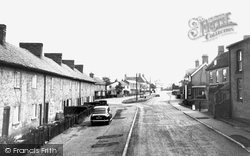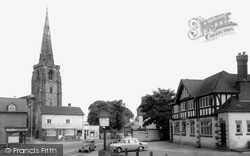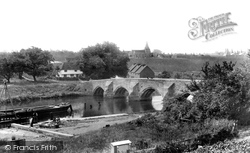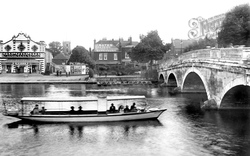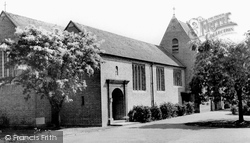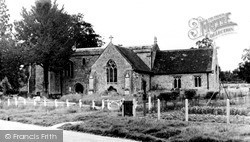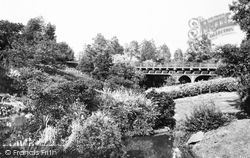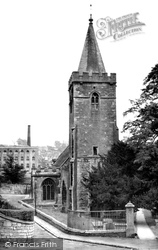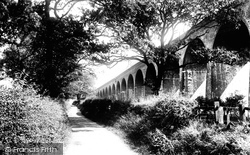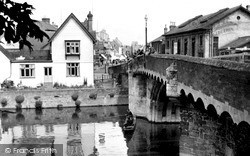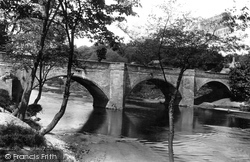Places
Sorry, no places were found that related to your search.
Photos
5 photos found. Showing results 521 to 5.
Maps
83 maps found.
Books
Sorry, no books were found that related to your search.
Memories
1,127 memories found. Showing results 261 to 270.
Thursday Market Bus Trips From Bradwall
In this picture one can see the town hall in the background and next to it now is Price City (2008), prior to that the Co-op. When I was a child this building used to be the Hungerford Cafe. I used to look ...Read more
A memory of Sandbach in 1959 by
Sweetshop In Hoppers Road
I attended Palmers Green High School in the late fifties and early sixties. There were no school playing fields so we had to go to Ford's Grove in Winchmore Hill for sport. One day I and a group of friends went to find ...Read more
A memory of Palmers Green in 1959 by
St James Cinema
I remember the pianist who played for a week at the St James, I had forgotten what he was called until I saw your entry. A few years later I worked at the St James as a projectionist with a Mr Bell; there was a Miss Greenan who was ...Read more
A memory of Harrogate in 1959 by
Moved To Barns Green In 1958
My family moved to Barns Green in 1958 purchasing Cootes Farm and then Bachelor's Farm shortly after (hardly large enough to be called farms, but that was their names). I was 15 at the time and had many friends and fond ...Read more
A memory of Barns Green in 1958 by
Argent Street Grays
I too, was born in Argent Street, No 85, next door to Potters Shop. Only the alleyway divided our house from them, and two doors away from The Castle. I have fond memories of growing up in the early sixties, and my adventures ...Read more
A memory of Grays in 1958 by
Life On The Quay
I was born at Bradwell on Sea waterside in 1958 and remember the quay very well. Much of my growing up days were spent playing on the very quay in the photo. In the summer we would leap into the water from the quay which was ...Read more
A memory of Bradwell on Sea in 1958 by
East Ham From 1958
I was born and raised in East Ham and was very proud of it. We lived in Friars Road off the Barking Road and moved to Lincoln Road off High Street North. The postcards brought back memories of home. East Ham used to be a very ...Read more
A memory of East Ham in 1958 by
Llangattock People
I did not know many of the people of the village or much of the history of the village. However there were some who stay in my memory and to this day I often think about them. All too often I cannot remember their names. I ...Read more
A memory of Llangattock in 1958 by
School In Bradford On Tone
I lived in Bradford in the bungalow my dad designed at the corners. We emigrated to Canada in 1958 - I was 7. My dad came over here first to get work as an architect and a home for us. My mum, older brother, ...Read more
A memory of Bradford-on-Tone in 1958 by
Roman Dig
In about 1957-8 our history teacher at Hereford High School arranged for those that were interested to make a 'dig' in the yard besides the library ( on the left with the arches). We dug down at least 6 feet or more finding Victorian stuff ...Read more
A memory of Hereford in 1958 by
Captions
1,233 captions found. Showing results 625 to 648.
Its arches to north, south and east are very tall too, and of Decorated style.
Today, the college is still a vibrant place of learning, and open to a much wider range of pupils than Humphrey Chetham ever dreamed of.
These arches can be seen when approaching Sawley (or 'Sally') Abbey. Built in about 1890, one of them had to be removed years later because it obstructed the highway.
The shot is seawards (centre), through the arches, from the Guildhall (left).
The Gothic-arched County Bridge straddles what was the old border between Yorkshire and the Palatinate of Durham.
Behind the mini-van on the left, the Butchers Arms had replaced a much older half- timbered building damaged extensively by fire in 1939.
The priory was dissolved by Henry VIII in 1537 and the church was demolished, but much of the priory was incorporated in the Tudor mansion we see in this view from near the gatehouse.
These ruined windows and arches are the remains of the cloisters. Situated in the north-west Cotswolds, Hailes Abbey was founded in 1246.
The 19th-century squire, Sir Edward Cholmeley Dering, had every window in the village altered to have rounded lights under an exterior arch in the belief that this would bring good luck.
Inside, the nave south arcade is partly late 12th-century and of high quality, and so are the rest of the nave arches, which are early 14th-century.
Internally, the church shows its Norman origins with two-bay arcades north and south and unmoulded arches separated by pieces of wall.
Opposite the arches and pillars of what used to be Hayman's Pianoforte Warehouse are just visible; the premises are now a gun shop.
The tiny nave and chancel have no arch; the plaster ceiling probably dates to the early 19th century. A bell from the time of the church's completion is kept on a window-sill.
right) is now a private house; the next building has been demolished, but Chequers House, in the foreground, has been restored, and today sports fine wrought iron railings and a splendid iron gate arch
The church is built of a grey sandstone; the scraping of the interior has left it somewhat dull, but relieved by the royal arms dated 1684 above the chancel arch.
This peaceful scene shows the 14th-century five-arched ragstone bridge, which is considered by some to be the finest in the south-east.
This view looks across the river to the south bank, now a much changed view. The Picturedome at this time was showing 'Madame Peacock' daily at 3, 7 and 9 o'clock.
Particularly pleasant is the Tuscan-columned interior, with its round arches under a wagon roof.
The nave is mainly 12th-century, while the 14th-century south chapel has an external arched tomb recess under its three-light window (centre).
The cast iron rustic bridge, built in 1870, has always been a much-photographed spot.
There are also memorials to Anne Long, 1601, in brass, and to Charles Steward, 1701: a standing figure (by Nost) is in front of a blank arch, with mourning putti left and right.
Here we have a grand view of the railway arches heading out of Whalley.
Apart from the need for something stronger, it was believed that the small arches restricted the flow of the Ouse and led to the formation of ice during the winter.
This sturdy bridge over the River Wharfe, linking Boston Spa with Thorp Arch, was built in 1770. Along the banks to the east is the old Spa Baths, now converted to housing.
Places (0)
Photos (5)
Memories (1127)
Books (0)
Maps (83)



